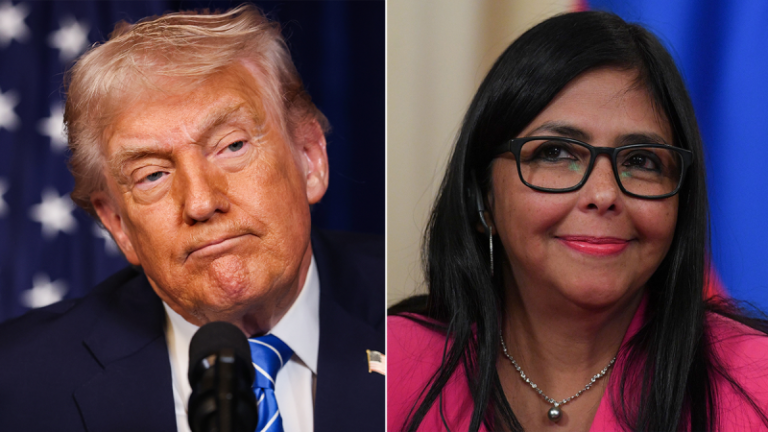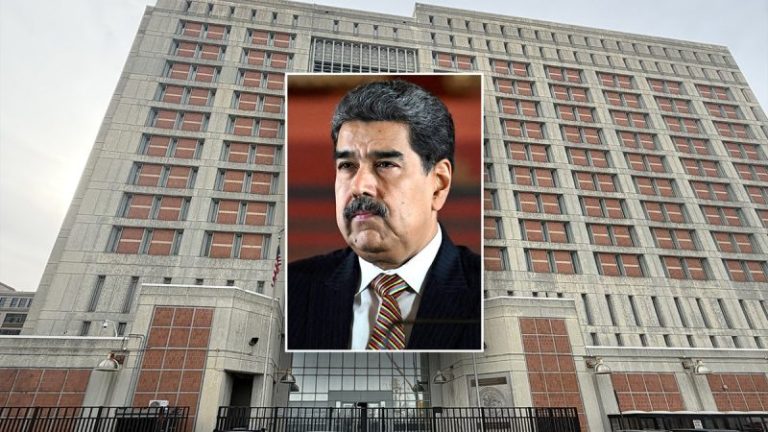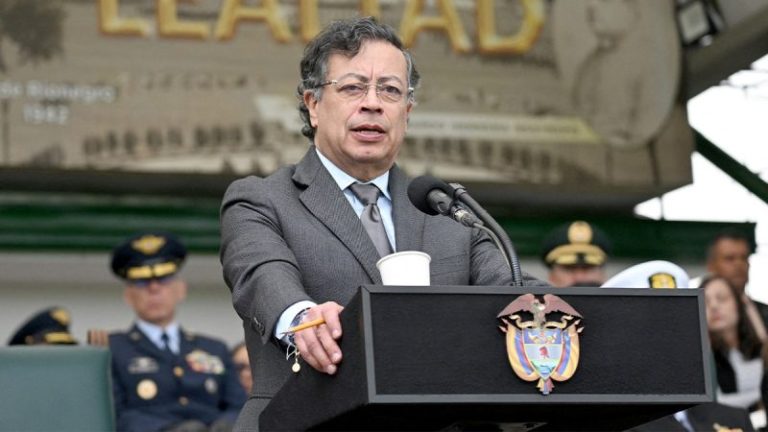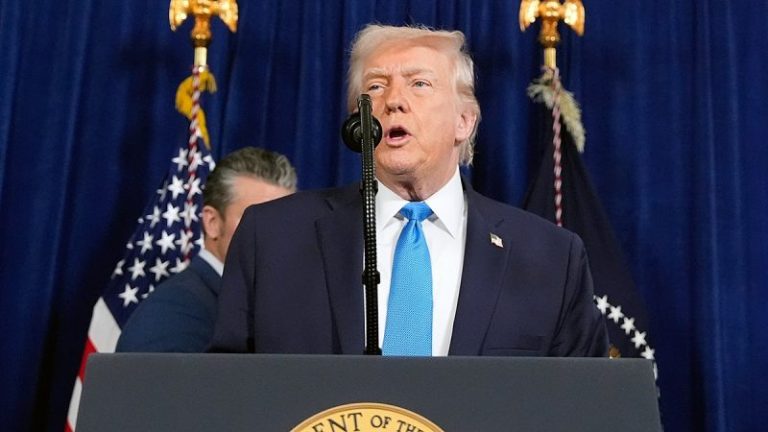President Donald Trump’s bold decision to capture, arrest, and bring Venezuelan strongman Nicolás Maduro to trial for drug-related offenses is far bigger than Operation Absolute Resolve itself. It resets the global chessboard. Here are ten reasons why.
First, the Venezuelan operation proves that American military and intelligence capabilities aren’t just better than anybody else’s — they operate in a wholly different dimension.
Russian President Vladimir Putin has thrown his entire military at Ukraine in hopes of establishing Russian domination and killing President Volodymyr Zelenskyy. The bloody war has dragged on for three years, costing hundreds of thousands of lives and hundreds of billions of dollars, while draining both countries. And still, that war grinds on.
President Trump sent a small group of special forces into Caracas. Within three hours, they had captured President Maduro and his wife, transporting them to New York to face justice in a U.S. court. No Americans were killed.
Operation Absolute Resolve, like Operation Midnight Hammer, which destroyed Iran’s nuclear capabilities in a matter of hours, was carefully planned, flawlessly executed, and 100% successful. Nobody but America could do that — and leaders around the world know it.
Second, as President Trump says, if you kill Americans, you will be held accountable. Maduro and the drug cartels have killed tens of thousands of Americans with drugs. Not only have we now secured our borders and stopped the flow of fentanyl, but we are bringing drug cartel leaders — including the Maduro family — to face justice.
Third, President Trump has just reversed decades of failed American foreign policy. For years, American leaders of both parties ignored the importance of the Western Hemisphere. They dismissed the growing threats from the countries themselves and from anti-American powers seeking to establish footholds in our hemisphere. American leaders turned a blind eye to drug smuggling and human trafficking. The Biden administration, for its own political purposes, actively encouraged a mass invasion across our border by illegal aliens.
Operation Absolute Resolve, like Operation Midnight Hammer, which destroyed Iran’s nuclear capabilities in a matter of hours, was carefully planned, flawlessly executed, and 100% successful. Nobody but America could do that — and leaders around the world know it.
While we were focused on the forever wars in the Middle East and the dogma of climate change, three groups were moving into South and Central America — the Chinese, the cartels, and the communists.
Trump’s new national security strategy puts the Western Hemisphere at the center of our foreign policy. Trump allies and reformers now govern Argentina, Chile, Paraguay, and El Salvador — and potentially Venezuela. His long-term vision is a North and South America united by similar economic and governance systems, working in harmony for peace and prosperity.
Fourth, President Trump has reestablished the Monroe Doctrine, which forbids foreign powers from operating in the Western Hemisphere. Two hundred years ago, President Monroe warned European powers against interfering in the Americas. Sixty years ago, President Kennedy used the Monroe Doctrine to keep Soviet missiles out of Cuba. Forty years ago, President Reagan used it to stop the Soviet Union from establishing military bases in the Caribbean. The Monroe Doctrine was a foundational principle of American foreign policy, establishing the Western Hemisphere as an American zone of influence.
The Obama administration abandoned the Monroe Doctrine. Secretary of State John Kerry unilaterally declared it dead. The Biden administration also abandoned the Monroe Doctrine by looking the other way while Russia, China, and Iran established footholds in several countries.
By sending the American armada into the Caribbean, President Trump reinstated the Monroe Doctrine and declared, ‘American dominance in the Western Hemisphere will never be questioned again.’
The new Monroe Doctrine is not an effort to keep our southern neighbors down; it is intended to keep malign powers out.
Fifth, President Trump uses not only military might but all aspects of American power — especially trade, finance, and technology — to influence world events. Before he dispatched special forces to capture Maduro, Trump put massive economic pressure on Venezuela. Maduro relied on a ghost fleet of unregistered tankers to illegally ship oil abroad, especially to China.
These transactions were sanctioned but never enforced. Oil sales brought Maduro about $200 million a week, which he used to bribe and blackmail Venezuelan kleptocrats and pay his military. President Trump enforced those sanctions and seized the oil tankers. By cutting off his main source of funding, it was only a matter of time before Maduro ran out of money.
Sixth, critics are quick to accuse Trump of the policies he once criticized — regime change, nation-building, and forever wars. They’re wrong. President Trump has learned from the failures of the past — he doesn’t want to repeat them. President George W. Bush overthrew the Iraqi and Afghan governments, fired government technocrats, and imposed U.S. occupations that were doomed from the beginning. He tried to impose Western-style democracies on countries that were neither suited for it nor wanted it. He got us tangled in decades of wars we couldn’t win, with massive losses in blood and treasure.
President Obama made the opposite mistake. He helped topple dictators during the Arab Spring but then walked away from the ensuing chaos, under the misguided assumption that these countries would immediately embrace democracy on their own.
President Bush tried to do too much. President Obama did too little. Both failed.
If critics had listened carefully to President Trump’s press conferences and statements, they would realize he aims to chart a different course. Trump said the U.S. would ‘run’ Venezuela until governance could be turned over to the Venezuelans. That’s a far cry from decades of occupation and nation-building.
Until Maduro and his predecessor, Hugo Chávez, seized power, Venezuela had a long tradition of democracy, with regular elections, a free press, and an independent judiciary. Trump isn’t trying to run Venezuela forever. He is already negotiating with remaining members of the Maduro government and political opposition groups for a smooth and quick transfer of power to the Venezuelan people, overseen by the U.S.
Seventh, the oil. The future, in both manufacturing and artificial intelligence, belongs to countries with technological superiority and inexpensive, abundant energy resources. Venezuela has the world’s largest known oil reserves but needs investment to modernize production. American companies have a long history of working with Venezuelan oil companies, and we can do so again. It will be a win-win for the U.S. and Venezuela.
But there is a secondary effect of increased Venezuelan oil production: over time, it will drive down global prices. Russia and Iran rely on oil sales to fund their governments. More oil worldwide means lower prices, which means less income for our enemies.
Eighth, corrupt, incompetent, America-hating dictators should take note. With American help, Maduro is now gone. If the United States and Venezuela, working together, succeed in establishing a new government that restores capitalism and democracy, it will succeed.
If so, could Venezuela be the spark that ignites other democratic reform movements? Cuba is kept alive by Maduro’s drug money. What happens when that money runs out? What happens to the pro-Maduro Colombian government once a new Venezuelan government is formed?
Ninth, the world will now see firsthand what the American legal system looks like. Maduro will be tried in the U.S., in a public courtroom, with the world watching. The Justice Department has worked for years to build a solid case against Maduro for narcoterrorism, drug trafficking, and money laundering. It will show Maduro’s personal connections to drug cartels and human trafficking. It may also shine a light on malign foreign involvement by Iran, Russia, and China.
Finally — and in some ways most importantly — President Trump has overcome the loser syndrome. For years, China has told the world that America is a nation in irreversible economic and moral decline. We fought and lost forever wars in the Middle East. Biden’s Afghanistan withdrawal was shambolic. We have been pushed around by our enemies and disrespected by our allies. Our own leaders have been corrupt, incompetent, and unresponsive.
That has now changed. Our economy is at the starting gate of significant growth. Trillions are being invested in American manufacturing. Our technology and energy sectors are unleashed. We have the most powerful and capable military in the world. Our leaders — especially President Trump — are decisive, confident, and unafraid. More and more people at home and abroad no longer see an America in decline but an America perhaps poised for a new Golden Age.
This post appeared first on FOX NEWS










